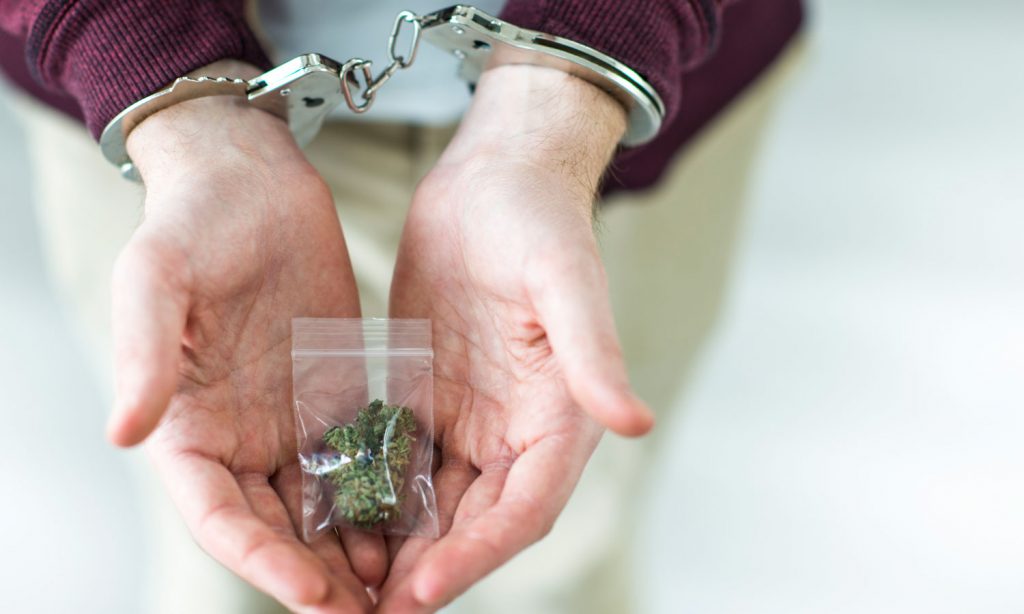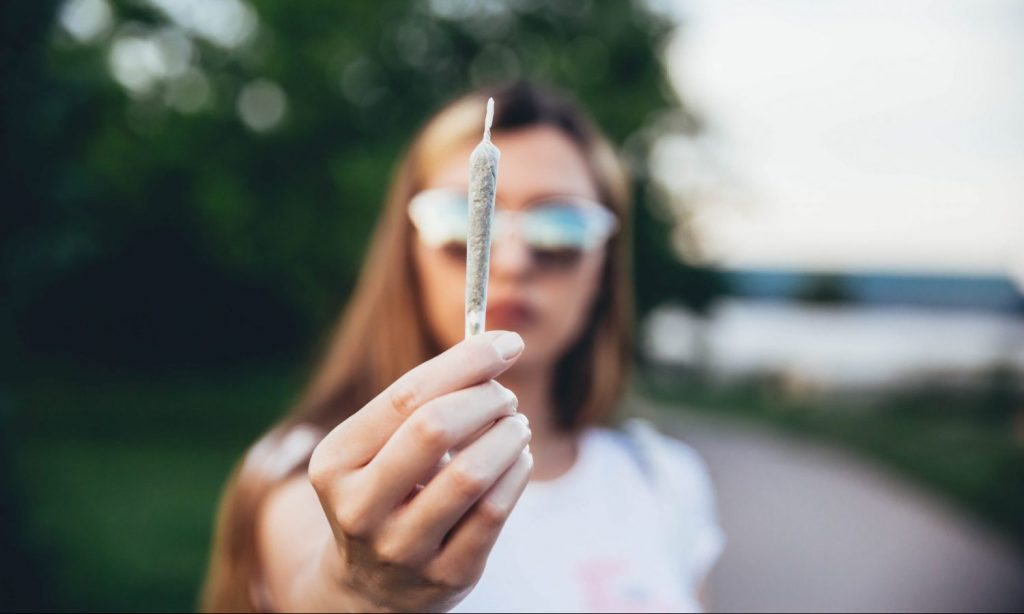
Does the cannabis industry have a double standard with science?
The cannabis industry moves through the United States with the power of a Mack truck yelling across the freeway, billows of smoke billowing out of the windows, and a sign on the back that reads “Red Eye Express”. The business of growing and selling weed has matured into a multi-billion dollar business despite having no federal government support, and about 70% of the population believe the business is taxed and regulated like alcohol and tobacco should be.
Nonetheless, naysayers of the nug are concerned that borderline apocalyptic times will come due to increased efforts to legalize the paper. Additionally, they fail to understand why the country is willing to listen to federal health officials regarding COVID-related issues while rejecting the evidence against marijuana.
Photo by Christina Winter via Unsplash
“At a time when millions of Americans turn to the CDC and NIH for advice on COVID-19, these institutions’ health warnings about marijuana are being ignored in favor of claims made by cannabis profiteers.” wrote Kevin Sabet, president of the anti-drug organization Smart Approaches to Marijuana (SAM) in a column for Newsweek. “Why the double standards?”
The biggest criticism Sabet has is the popular notion that marijuana is not a gateway drug. He believes that pot fans have a misconception about the “gateway theory”. It’s not necessarily a concept that ensures that a person who uses marijuana today will be shooting heroin tomorrow. It’s just that, true to the gateway name, it opens the door to the possibilities. “The truth is simply that people who use drugs usually don’t use just one,” wrote Sabet, referring to a prominent study in Addiction magazine that found marijuana users were 2.5 times more likely to develop opioid addiction.
While Sabet’s argument is admirable and even true, the same could be said about alcohol and tobacco, both of which are nationally legal. Any substance that alters the brain could be viewed as a gateway drug. Alcohol usually gets the blame, mostly because that’s what teenagers try first.
Higher crime is another concern Sabet has given the ongoing moves to legalize cannabis. “While it’s hard to say whether legalizing marijuana causes crime, there is plenty of research suggesting a strong link,” he wrote, citing two studies showing increased crime rates in Colorado, where weed is legal.

Realistically, however, this crime is cannabis related and is directly attributed to conflicting cannabis laws across the country. Legal weed doesn’t create an influx of rape, murder, and theft. Most of the crimes are related to organized crime and money laundering, parole violations, and parcel transfers.
Sabet is also worried about potency. It draws on several studies that show a link between highly potent marijuana and the development of mental illnesses such as schizophrenia and psychosis.
RELATED: Anti-Marijuana People Credit Legalizing Alcohol-Related Deaths
“Today’s marijuana is up to 50 times more potent than the marijuana used in the past, causing people to do more than just” rest, “he wrote. “Scientists have confirmed the harmfulness of these products.”
Is that true?
Well, maybe to some extent. There is a lot of conflicting evidence, but those who develop mental health problems as a result of regular cannabis use seem to be wired into it anyway. In addition, like the New York Times released in 2019, yes, cannabis can cause schizophrenia, “but also excessive consumption of caffeine, nicotine, alcohol, stimulants and hallucinogens”. Most of these are legal drugs in the United States. However, the paper continued, “The vast majority of people do not develop a persistent condition such as schizophrenia, which is characterized by years of recurring psychosis, as well as cognitive problems and social withdrawal.”

There is also lore about marijuana, which reduces the opioid epidemic. Sabet has a problem with this claim, and rightly so. As he points out in his column, cannabis advocates continue to rely on a “now debunked” study showing a 25 percent reduction in opioid deaths where marijuana is legal. Stanford has since conducted more research and found the opposite: Opioid deaths rose 25% in legal marijuana states. “We need to stop maintaining the misconception that marijuana is an answer to opioid abuse,” Sabet wrote.
RELATED: Will Marijuana Reform Legalize Harder Drugs?
The circle is almost complete, with studies showing that people who regularly use cannabis are more likely to abuse prescription opioids, consistent with the Gateway theory. Other studies show that cannabis isn’t even an effective pain reliever anyway – at least no more than ibuprofen. It’s just not the same.
“Proponents of legalization often argue as if they have science on their side. The truth is just the opposite: every single major medical association is against legalization. Often citing non-peer-reviewed articles or articles in inferior magazines, the cherry-picking of legalization advocates is a serious disservice to those interested in the truth, “Sabet wrote.
RELATED: Billionaire Charles Koch Will Fund Lobbying Efforts To Legalize Marijuana Nationwide
Americans may be quicker to listen to the federal government about COVID than they do to cannabis because they are two different things. Most fear exposure to a virus and become life sustaining, but they are fully aware that marijuana does not bring these risks. They want information about vaccinations, masks, and other prevention methods because they don’t want to die. After all these years, even marijuana’s greatest enemies are not worried that it will kill people.
The real risk associated with marijuana continues to lie in the guidelines backing the ban. Hundreds of thousands of people are arrested every year, families are broken up, jobs are lost, etc., all because conservatives are afraid of high society. Sure, there could be a double standard. After all, this is America. Double standard is what we do. But it comes from all sides.

Post a comment: